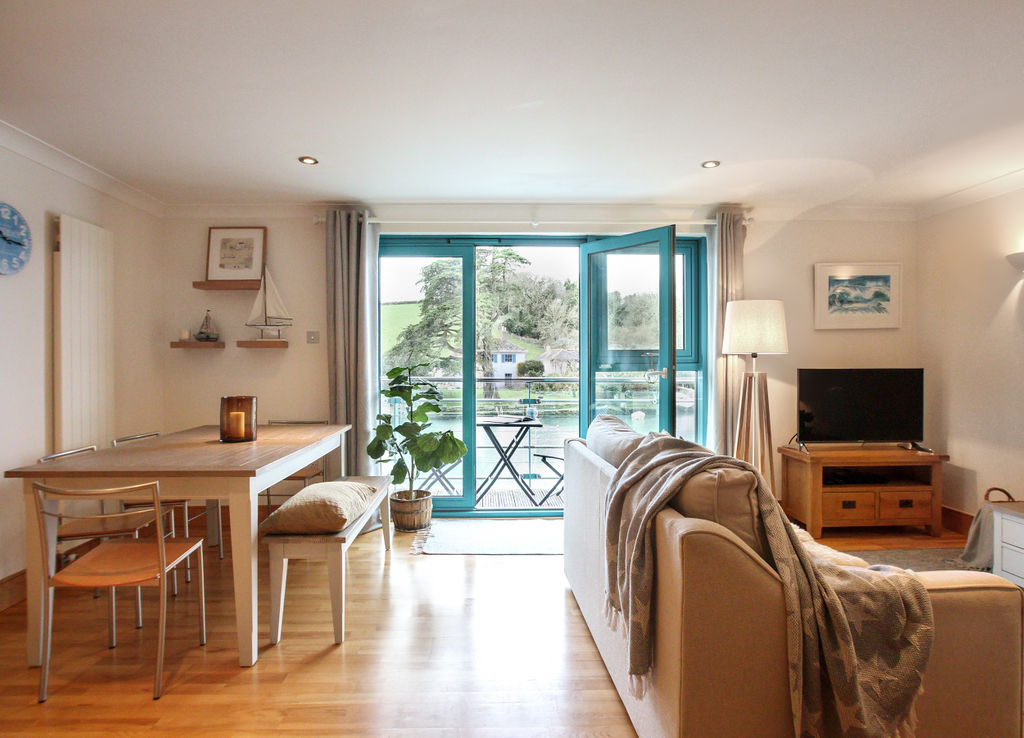
How do I advertise my holiday let?
How you advertise your holiday let is essential to its commercial success. On the one hand, there are so many options available that it’s now easier than ever. On the other hand, that same variety of options makes it an increasingly competitive and overwhelming marketplace.
The digital world is powerful but the proliferation of options can also dilute the effectiveness of any one platform, making a multifaceted approach the most effective but also fairly time consuming. Professional support is extremely valuable but if you don’t want to concede all control to a traditional marketing and letting agency, the options are not always clear.
In this article we explain which platforms and processes provide the best value and outcomes when it comes to advertising your holiday let. We also show how the help of a professional hosting service can provide you with the support you need as well as the transparency and control you deserve.
What do you want from your holiday property?
Advertising your holiday let starts long before you upload photos to a website. First of all, it’s about deciding what you want from your holiday home. Considering your priorities will help you to decide which type of letting solution is best for you as well as the most effective platforms for holiday home marketing and advertising.
For example, which of the following are most important to you?
- Flexibility to use the property when you want
- Profit from letting
- Ease of running a holiday let
- Transparency of fees and how the process works
- All of the above
Target market
Who are you talking to? Who is your holiday home for? When it comes to attracting guests, what type of holidaymaker does your second home appeal to and why? From setting up the property to what you write on your listing, knowing who your target market is will influence how you advertise your holiday home.
For example, you might consider adding some of the following features, then make sure these feature in photographs and in the details of your online listing or social media activity (more on that shortly).

Families
If you want to appeal to families, you might consider including high chairs, toys, additional pull out beds, cots and games. The baby-friendly holiday property market is niche but highly sought after by families in that phase of parenthood - being upfront about what’s provided that will make their holiday easier (and their packing lighter!) will help your holiday home stand out in even the most competitive location.

Couples
If you’re marketing your holiday property for couples looking for weekend getaways and midweek mini breaks you might consider things like a welcome hamper on arrival. Make sure there’s a stack of logs to go in the log burner come winter,, and a guide to scenic walks or romantic restaurants. You may wish to make particular reference to the quality of the bed linen, and any toiletries provided.

Groups
If your property is well suited to groups of friends or multiple families holidaying together, ensure there’s enough seating for everyone at the table, in the living space and outside. Again, you might include games and restaurant tips, as well as suggested activities in the area. If people are visiting for celebrations, consider a bottle of champagne on arrival and an appropriate welcome note, and consider including catering options for people who want to dine in and make the most of your fabulous space.

A variety of guests
Often properties are suited to a variety of guests for a variety of reasons. It might also appeal to different guests at different times of the year. With that in mind, you may choose to update listing information seasonally with new photographs or to group seasonal photos together in your gallery.
Put yourself in the shoes of each type of guest and ask yourself: ‘if I were to advertise my holiday let to that particular person or group, what would I look for in the property and the stay experience?’ It may be that you have sections of your description that talk to specific guest types or about the different seasons.
Consider the guest journey
When you’re having photographs taken for your listing platforms and marketing materials, and you’re writing the listing description, think about the journey that you want to take your prospective guest on.
- How would you show them around the property?
- Where would you start to capture their attention?
- How would you give them a sense of what the place is like, what to expect and what to get excited about?
- How do you want them to feel after looking through your listing?
You want guests to feel excited about where they’re going but also informed, so make sure the written information and the photography work together. Also, consider the order of the imagery (wow-factor first), especially for online listings where you have a matter of seconds to grab someone’s attention before they scroll past.
Use professionals
We might all have smart phones with cameras on them, but not everyone is a professional photographer. Nor is everyone a writer. When it comes to taking the photos and writing the copy for your holiday let advertising, use professionals.

Photographers
This is the first thing people see when they look at your listing so it’s got to be high quality, inspiring and informative. A professional photographer who specialises in property will know how to get the lighting, the angles and the right shots to really promote your holiday let. It will give people a sense of what they’re going to experience and allow them to start imagining themselves in the space.

Copywriters
The written information is the bit that seals the deal when it comes to your holiday let. People are drawn in by the photographs, but it’s the information you provide that lets them know what experience they’re going to get and whether the property meets their needs on a practical note. It’s not just about pretty adjectives, it’s about making the words work for their space on the page.
A professional copywriter will provide an outside perspective as well as an expert approach. They will be able to write copy that sounds sharp, reads well, competes editorially but that is also rich in the keywords and headlines that improve your search results.

Getting the price right
Pricing is a sensitive topic but it’s a big part of advertising your holiday let. It’s not just about your property and what it’s ‘worth’ but also how it relates to others in the area. If it sits directly next to something half the price online then there needs to be a reason. That said, it’s also not a race to the bottom. Holiday let pricing has to make sense for you so that you make a reasonable profit on each booking but your home also has to compete in the market. This comes back to those initial objectives - what you want from your holiday let.

Holiday home marketing websites
The websites you choose to advertise your holiday let on will have a direct impact on how discoverable your property is online as well as the profit you make from each booking. Different sites charge different levels of commission so this is important to consider in the pricing structure.
- Traditional and boutique letting agencies charge far and away the highest commission (typically 16%-32% +VAT of the letting revenue) and typically require you to commit a number of weeks purely for guests but they also take care of all aspects of marketing without your involvement.
- Self-managed online travel agents (OTAs) typically charge 3%-4% commission, but all aspects of administration and compliance are left up to you, with only online articles and FAQs for guidance.
- HolidayHost was created to allow you to have the best of all worlds. Our fees are lower because we leverage the marketing power of the OTAs to make your property discoverable online, while still handling the holiday let administration. So you benefit from a greater share of the profit, supported by expert advice and industry knowledge, total transparency on costs and charges, and you retain control of when you stay without needing to get tied up with the daily admin.
Our approach is to list your holiday home on multiple OTA websites for optimum exposure but also to spread your risk. If one platform raises its commission rate, you are able to stop using it without relinquishing your entire marketing strategy.
The top holiday rental websites to advertise on include:
Vrbo - 5% per booking
Vrbo began in 1995, so it’s a real matriarch of the online travel space. It started as somewhere to pair homeowners with families looking for places to stay - the name is an acronym of: Vacation Rentals By Owner. It was acquired by HomeAway in 2006. Then Expedia, which acquired HomeAway in 2015 retired the HomeAway brand in favour of Vrbo in 2020. What does all this add up to? A highly reliable and trusted platform. To date it has more than two million active listings.
Booking.com - 15% per booking
A Dutch online travel agency, Booking.com is not just for holiday homes. As you may well know from using it yourself, it includes hotels, lodges, holiday homes and more. In fact, it has over 28 million listings in 43 languages. Once again, it’s a brand that’s global, has a strong reputation and is trusted by consumers.
Airbnb - 3% per booking
Arguably the most famous of the online booking platforms for holiday lets, Airbnb is San Francisco based with a global footprint, and charges the lowest booking fees. It’s become extremely popular for its ease of use, so once again is trusted by consumers and since it began in 2007 it has grown to feature more than five million listings and counting.

Social media
If you want to continue an element of holiday home marketing yourself, irrespective of which holiday home advertising website you choose to work with, social media may be one promotional channel to consider.
The chances are that you already use some form of social media socially as it is, so you may have a following that you can promote to, or you may choose to set up dedicated profiles to showcase your property. There are multiple platforms to choose from, and you may opt for several or to focus on one consistently rather than spreading yourself too thin.
How you use them is personal to some degree, but telling the story of your property, showing it through the seasons, highlighting the different facilities and details, as well as showing what is available in the surrounding area is a great start. You can also share last minute availability as well as property news and updates.
Instagram and Facebook are great platforms for this because they are image led, which grabs peoples’ attention. However, your choice of platforms will depend on your target market.
For example, the main user demographics of some of the most popular social media platforms are:
- Male
- Aged between 25 and 49 years
- Male
- Aged between 25 and 34 years
- 73% of Facebook users are 18-44

Interacting with customers
Advertising and marketing your holiday let doesn’t end with the online listing if you’re choosing to do it yourself. ,Interacting with potential guests and previous guests is also essential for securing a booking and encouraging repeat bookings.
Handling guest queries
Before a booking has gone through, potential guests often have questions. Answering these politely, professionally, helpfully and in a timely manner can be the key to securing the booking but also encouraging recommendations as well. Even once a guest has booked they have questions and there will be information beneficial for them between booking and arriving at the property.
An agent or HolidayHost will handle all elements of guest management for you.
Responding to reviews
Online review platforms can be both a blessing and a challenge. When guests have positive feedback, encouraging online reviews on Google, social media, letting platforms, TripAdvisor or Trustpilot can pay dividends in encouraging others to book and helping people to find your property. However, when someone has had a negative experience it can also present a challenge. That said, how you handle them can be game changing. Responding quickly and helpfully can turn a negative review into a positive outcome - it also shows other potential bookers that you care.

Repeat bookings
Repeat customers are essential for a successful holiday let, and all stages of the advertising process are part of ensuring that. Making sure a guest finds all the information they need on the listing is just the beginning. Guest management is all about being helpful in your responses, proactive in your communication, ensuring that what they find at the property matches or exceeds expectation, and following up after their visit as well.
If you can get permission from guests to contact them with offers and marketing materials after their stay, sending follow up emails or newsletters can be a great way to build relationships and encourage repeat customers. This is about showing you care, remaining in the customer’s mind and making repeat booking easy and enticing.
You might include:
- A follow up message to ask if they enjoyed their stay and encourage online reviews.
- Seasonal updates to showcase new facilities or features at different times of the year.
- Offers such as access to last minute availability in case of cancellations.

Keep your holiday let advertising up to date
Finally, remember that once you have created your online listing, it isn’t a static thing. Reviewing imagery and written information each year to make sure it’s still relevant is essential.
If you have repainted rooms, added new facilities, or even if you have mentioned local restaurants that are no longer in business, marketing and advertising your property is as much about staying up to date, fresh and relevant to your market year on year as it is on day one.
HolidayHost does the marketing of your property so you don’t have to. If you would like to find out more about the services we have to offer, contact the team any time.



